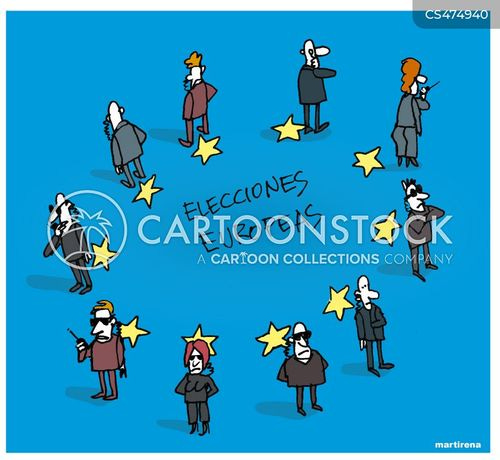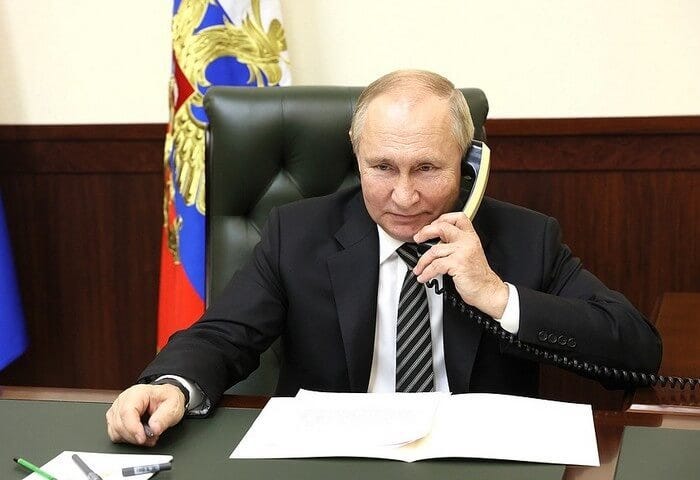According to a well-known (albeit apocryphal) joke supposedly uttered by Henry Kissinger, Europe has no phone number. Later, the Financial Times clarified that these words were never actually spoken, at least not in that exact form, but the point remains relevant. At the time when Kissinger was the U.S. Secretary of State, he did not have a counterpart across the ocean. With the adoption of the Lisbon Treaty, which reformed the EU, two new positions were introduced to strengthen the EU's role in international relations, both institutionally and personally. Let's recall: although it was a year after the financial crisis of 2008 that shook capitalism to its core, the EU was still living in the dream of its own grandeur and the ingenious concept of so-called soft power. The President of the European Commission proudly announced that now the U.S. (and anyone else) could call the EU at at least two relevant numbers: that of the High Representative for Foreign Affairs and Security Policy (essentially a foreign minister) and the President of the European Council (meant to serve as the EU's presidential figure, a position occupied by the pale and now-forgotten Herman Van Rompuy, who eagerly waited by the phone for a call that never came).
This ironic exchange between the U.S. and the EU continued in the following years. During Federica Mogherini's term as head of European diplomacy, at a time when the Trump administration frequently reshuffled its cabinet, she retorted: And which number should the EU call if it wants to talk to the U.S.? The problem with Europe (or the EU, if you prefer) was and remains much more profound, not only because of Trump's new team. On key issues concerning the European continent, the EU has failed to establish a unified foreign policy (let alone a security policy). The issue of Kosovo's recognition is just one divisive topic among member states, but the challenge surrounding Ukraine appears even greater. The truth is that European foreign policy has never spoken with one voice—and it likely won't for a long time to come.
Just a few days ago, the eloquent U.S. Vice President, J.D. Vance, created a stir in Munich with an impromptu speech that reminded many of Putin's verbal slap in the same venue back in 2007. Back then, self-assured transatlanticists could afford to mock and ignore a historically significant speech by a foreign president (though that turned out to be a fatal mistake). Now, however, the slap came from an ally—and it hurt all the more. In essence, Vance delivered a simple message to an elite convinced that "there is no alternative" to their worldview: there’s a new sheriff in town! Anyone who has watched Westerns knows what it means when a new sheriff arrives in a town gone wild, where no one knows who is in charge or who pays the bills. Following revelations about scandalous (albeit unsurprising) dealings and operations by USAID and NED, the West now resembles a "Balkan tavern" (something we can't help but view with a bit of schadenfreude). Vance was, of course, referring to the president who, in less than a month, had created unprecedented drama in foreign and security policy, leaving analysts and allies on constant alert. Some even spoke of "cannibalism towards allies" (especially regarding tariffs, though the situation has now become far more serious).
Regarding Ukraine, interestingly, Trump never sought any European politician's phone number or involvement. The number he needed—the Kremlin's—was already in his address book. The official confirmation of Trump's direct conversation with Putin caused a political storm in Europe (as if fresh snow had revealed all the animal tracks in the forest). While discrepancies between the two countries' statements are apparent when read between the lines, the crucial point was that the two nuclear superpowers had spoken directly for the first time in nearly eight years. This development should not be underestimated, even if the supposed "peace plan" remains unfinished and uncertain.
For those of us who have been writing and speaking about the Euromaidan events since 2014, warning about Ukraine's drift toward fascism and systematic violations of minority rights (with 14,000 casualties), and advocating for a peaceful, diplomatic solution, the mere mention of a peace plan brings a sense of vindication. Imagine: all of us labeled as Putinists, fascists, and worse can now say that even the U.S. president is talking about a peaceful resolution (or at least one that excludes U.S. military involvement). Personally, I find it hard to view Trump as a peacemaker, especially after hearing his idea of a Riviera built over the graves of Gaza's buried children. I would sooner compare him to Dr. Jekyll and Mr. Hyde—you never know who you're dealing with or what idea might pop into his head. For the Palestinians, unfortunately, there is no one to speak on their behalf: no phones, no politicians (Netanyahu eliminated the more experienced ones), and Trump wouldn't talk to anyone he doesn't consider an equal in terms of power.
However, one thing is certain: in the Kremlin sits a man who may be disliked or labeled an autocrat but is exceptionally intelligent and experienced (Trump likely feels intellectually inferior when they speak, though it's hard to say how well they grasp the core issues). Putin understands diplomatic etiquette, the necessity of dialogue even with opponents, but he also knows his red lines. As of now, no details about the peace plan have emerged (I doubt Trump has any concrete plan), but I am convinced that the two leaders might end up "lost in translation" (and not just linguistically). Mr. Jekyll, or the sheriff, is likely trying to mask the fact that the U.S. has suffered a military defeat in Ukraine (through NATO's proxy war), much like in Afghanistan. The simplest and cheapest solution for him is to declare this "ridiculous war" (as Trump calls it) over, extend a hand for a handshake, and leave the Europeans to clean up the mess, rebuild Ukraine, and keep it afloat. Naturally, the transactional leader will want compensation for America's services, preferably in the form of rare metals. His style demands quick fixes so he can pivot toward China and BRICS. Meanwhile, Putin insists on addressing the "root causes of the conflict" as a prerequisite for lasting peace. In peace studies, we call this a "root cause approach," but we also know it requires knowledge, patience, wisdom, diplomacy, goodwill, and trust-building.
The recent developments have revealed several additional truths (including during the Munich Conference and the ministerial meeting where Defense Secretary Hegseth delivered his own verbal slaps): while not formally announced, the U.S. is effectively leaving Europe. It is abandoning Ukraine without batting an eye. Europe, meanwhile, is unsure of its own identity, oscillating between NATO's appendage and an autonomous subject—yet, in both cases, it remains a U.S. vassal suffering from Stockholm syndrome.
Trump will not be calling Kaja Kallas, the blonde Baltic politician who demands Russia's military defeat and dismemberment, nor will he bother with Ursula von der Leyen. As for Mark Rutte, he is struggling to balance a crumbling alliance. Trump has also abandoned the "rules-based international order" (never having cared much for international law). Now he seeks to divide the world into spheres of influence—peacefully or by force. This is not a pacifist stance, and we should harbor no illusions.
But we should also let go of the illusion that the EU carries any real weight in international affairs or can sustain us. Still reeling from the bloody conflict in Ukraine and the narratives they embraced for three years, European states continue to invest in war, to the point of self-destruction. Even without the U.S. demanding 5% of GDP for defense, Europe is in a war-induced frenzy, oblivious to its own irrelevance: militarily weak, economically devastated, and socially fractured. The West, as we knew it, ceased to exist just three years after Moscow said NO—and after the global majority articulated a different vision for the world. Europe has no vision for itself. In three years, it has failed to propose a single peace plan because it was never a peace-oriented union. You cannot expect altruism, wisdom, or remorse from colonial powers. Yet, by insisting on a military "solution" and propping up Zelensky, Europe is dangerously hinting that it could, for the third time, spark a world war.









EU and the evil clowns that still run the show, needs to be shut down by a people powered citizen movement from European democracies. EU has failed its own citizens through mismanagement of foreign affairs, economic, strategic, cultural affairs. The EU is a geopolitical dwarf incompetent at peace. It needs to accept a new security and development architecture in partnership with BRICS+++ and the global majority. Its top echelons are neo nazis and war mongers. They are also racist and depraved towards friendly countries like the Republic of Macedonia. EU is a fake liberal democracy. It is new despotism dressed as liberal democracy.
The EU is a spoiled whore. Sugar Daddy Pimp United States just bitch slapped the spoiled whore and threw it out into the street.